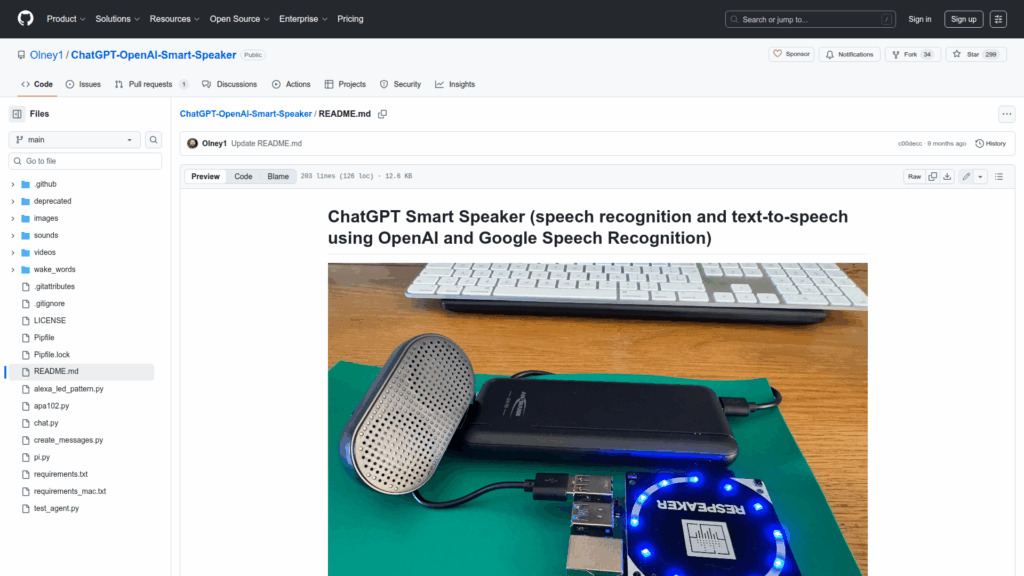ChatGPT-OpenAI-Smart-Speaker
Basic Information
This repository provides code, documentation and hardware guidance to build a speech-enabled smart speaker that uses OpenAI for conversational responses and Google Speech Recognition or Picovoice for speech input. It offers scripts to run on a desktop (chat.py and test.py) and a more advanced Raspberry Pi script (pi.py) that offloads wake word detection to a custom Picovoice model. The project includes detailed Raspberry Pi setup steps, a recommended equipment list including ReSpeaker and USB speakers, dependency installation instructions, and examples of configuring environment variables for OpenAI, Picovoice and Tavily. The README describes how the system listens for a wake word, sends recorded prompts to OpenAI, generates text responses and converts them to audio using gTTS or a text-to-speech model, making it a hands-free conversational device for prototyping and personal use.








